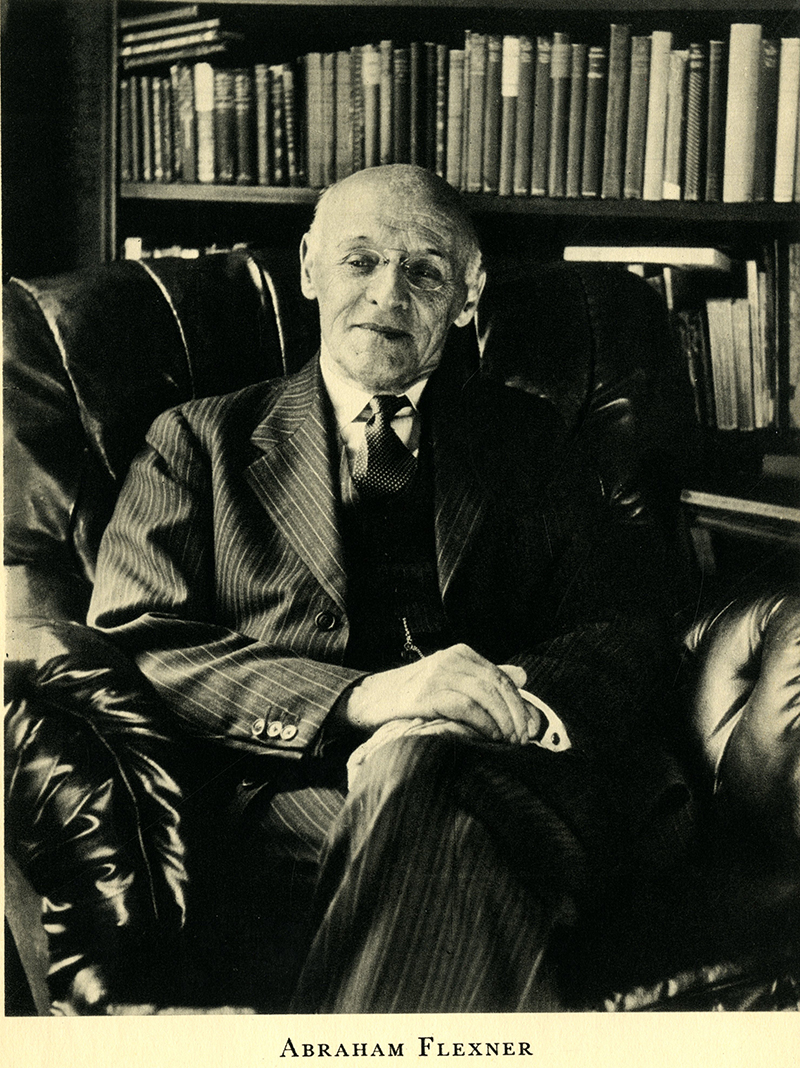Medical education in the United States and Canada : a report to the Carnegie Foundation for the Advancement of Teaching. New York : The Carnegie Foundation, c1910.
 With a background in education (not medicine), Abraham Flexner revolutionized medical education, and as a result, the entire field of medicine with his critical report on American medical schools. Flexner studied education at Johns Hopkins, and upon his graduation, founded a private boy’s school in Kentucky, which thrived under his direction. However, in 1905, he left the school to study psychology in Germany. Being very pleased with the quality of European education, he wrote a book comparing and contrasting American and German universities. The work was critical of the American education system, and upon recognition of its insights, Henry S. Pritchett, president of the Carnegie Foundation for the Advancement of Teaching, invited Flexner to do a study of American medical education (Oxford 392). The Carnegie Foundation had been asked to investigate the issue by the American Medical Association’s Council on Education, which had noted the poor quality of medical schools in its annual report for 1906 (Duffy 208). Flexner seized the opportunity, and spent the next year or so traveling around North America visiting and evaluating 160 medical schools.
With a background in education (not medicine), Abraham Flexner revolutionized medical education, and as a result, the entire field of medicine with his critical report on American medical schools. Flexner studied education at Johns Hopkins, and upon his graduation, founded a private boy’s school in Kentucky, which thrived under his direction. However, in 1905, he left the school to study psychology in Germany. Being very pleased with the quality of European education, he wrote a book comparing and contrasting American and German universities. The work was critical of the American education system, and upon recognition of its insights, Henry S. Pritchett, president of the Carnegie Foundation for the Advancement of Teaching, invited Flexner to do a study of American medical education (Oxford 392). The Carnegie Foundation had been asked to investigate the issue by the American Medical Association’s Council on Education, which had noted the poor quality of medical schools in its annual report for 1906 (Duffy 208). Flexner seized the opportunity, and spent the next year or so traveling around North America visiting and evaluating 160 medical schools.
At the time of Flexner’s investigation, Johns Hopkins was developing the German style of medical education that Flexner admired, and so he used this school as his model for comparison. In 1910, Medical education in the United States and Canada, better known as the “Flexner Report”, was published. The Reynolds-Finley Library has a first edition of this publication, which includes an introduction by Henry S. Pritchett. It is composed of two parts, the first being a history and critique of the subject with suggestions for improvement, and the second, a description and analysis of each American medical institution of the day (Garrison & Morton 1766.502). Evaluation criteria included the quality of the school’s research facilities (libraries and laboratories), the relationship of the school with a university, and the curriculum, which according to Flexner, ought to begin with instruction of the basic sciences and be followed by clinical studies (Oxford 392). He found only a few U.S. schools to be “true centres of medical research” (Cambridge 196). And these few institutions began to receive funding for research and clinical studies. Flexner initiated one of these grants from the Rockefeller Foundation, but other funding from both the public and private arena followed, most of which went to Flexner’s approved schools. The report is highly critical of institutions that did not meet his criteria. Because of this criticism, and because the funding trend sparked by the report widened the financial gap between the elite and poor institutions, more than half of these schools were forced to close down by 1930 (Duffy 209). Within just a couple of decades, Flexner’s report had revolutionized medical education and the entire field of medicine by raising standards and attracting funding towards research institutions.
Cambridge. Illus. Hist. Med., p. 196; Duffy, From Humors to Med. Sci., pp. 208-212; Garrison & Morton, Med. Bib., 5th Ed., 1766.502; Oxford Comp. to Med., Vol. I, p. 392; Reynolds Historical Library, Rare books and coll., 1453.
Image: Abraham Flexner, [From] I Remember: the Autobiography of Abraham Flexner (1940), Reynolds-Finley Library.
